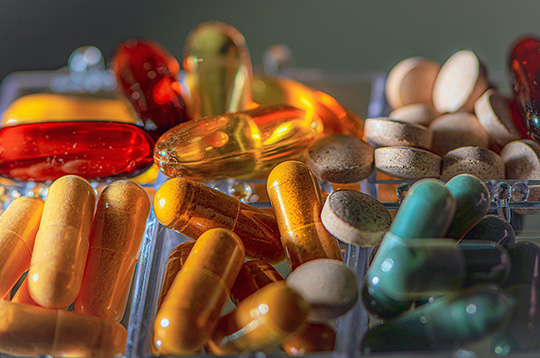How to Stay Healthy in Times of High Contagion
Market: Healthcare
At this point, we have all seen the various illnesses going around in our families, friends, colleagues, and more in the past couple of years. Despite the COVID-19 pandemic no longer being as severe of a threat as it once was, we still need to do what we can as a community to stay healthy and limit infection. Here are the best tips for reducing its effects and keeping up with our health in times of high transmission of the Coronavirus, RSV, or even the common cold.
RSV vs. COVID- 19
RSV and COVID-19 are the current buzzworthy viruses in the medical field outside of the flu and the common cold. These two are very similar in symptoms and transmission, and it can be hard to differentiate except for a few minor variances. Both respiratory illnesses cause fatigue, difficulty breathing, fevers, and other cold-like symptoms. A major distinction between the two is the age groups the virus affects. RSV is particularly dangerous in infants and the elderly. While this is also true for COVID, other ages can also be affected, especially if they already have a compromised immune system. However, the only way to know what’s causing your illness is to get tested for both when cold-like symptoms persist.
Preventative Care to Stay Healthy
As with any illness or issue, the best defense is prevention. When it comes to your health, it’s essential to make smart choices before an issue is even present.
-
Nutrient/ Vitamin Intake
 It’s no secret that doctors, nutritionists, and even weight loss specialists all have an opinion on what foods are “healthy.” While most of us don’t need to count every calorie for general health practices, we must prioritize eating a balanced diet. Eating good nutrients and vitamins can help ensure your body has all the tools to fight off any virus that enters your system. If not through food, taking over-the-counter vitamins can help your nutrients be at the necessary levels.
It’s no secret that doctors, nutritionists, and even weight loss specialists all have an opinion on what foods are “healthy.” While most of us don’t need to count every calorie for general health practices, we must prioritize eating a balanced diet. Eating good nutrients and vitamins can help ensure your body has all the tools to fight off any virus that enters your system. If not through food, taking over-the-counter vitamins can help your nutrients be at the necessary levels.
-
Limit Sugar Intake
Sugary treats are a dime a dozen in the world, but that doesn’t mean we should eat them all the time. Sugar, in general, is known to cause many issues in the body, like inflammation, high blood pressure, and, of course, diabetes. While these issues don’t directly affect the symptoms of COVID or RSV, they certainly don’t improve them. Your body can fight viruses but needs healthy energy to work at maximum capacity. Like with anything you ingest, moderation of sugar intake is critical.
-
Exercise
The CDC says physical exercise is “one of the most important things you can do for your health.” While they are not telling people to run marathons every other week, some daily movement is essential. Predominantly, exercise helps strengthen your cardiovascular health, which helps protect other systems in your body. The stronger your heart is, the healthier the rest of your body will be in return. An easy way to incorporate movement is simply going for a walk or stretching throughout the day during breaks.
-
Manage Stress
Stress is inevitable in anyone’s life; unfortunately, depending on the severity, it can lead to a weakened immune system. While you are not going to get COVID-19, RSV, or any other viral illnesses from stress alone, your symptoms can absolutely be exasperated by them. For this reason, it is crucial to manage your stress levels to prevent severe sickness. The best tactics to minimize stress can vary from person to person and from situation to situation. However, techniques such as therapy, meditation, and exercise are known to help mitigate stressful seasons of your life. If implementing these strategies or other forms of stress management doesn’t help, then the inevitable technique is to eliminate the stressor. Your immune system and overall happiness in life will thank you for it.
Tips for Healing Illness
Sometimes, a sneaky little virus can slip into your body even when you do all you can to prevent illness. When this happens, here are our tried and true tips for healing.
-
Rest
Every doctor will tell you to rest up when facing a virus. Sleep, in general, is one of the best remedies because your body heals when you do. Also, when your immune system fights a virus, it depletes the rest of your body’s energy. Sleeping restores that energy to give our immune system the boost it needs.
-
Medicine as needed for comfort
 Acetametaphin, ibuprofen, and expectorants are typically the go-to for colds and other viruses. However, sometimes to ensure the good night’s sleep mentioned in the previous point, it is wise not to take these medications right before bed. Unless, of course, you take the ones that are meant for nighttime specifically. Expectorants, in particular, are meant to help you cough up the bad stuff, not to help your body rest.
Acetametaphin, ibuprofen, and expectorants are typically the go-to for colds and other viruses. However, sometimes to ensure the good night’s sleep mentioned in the previous point, it is wise not to take these medications right before bed. Unless, of course, you take the ones that are meant for nighttime specifically. Expectorants, in particular, are meant to help you cough up the bad stuff, not to help your body rest.
-
Sunshine and fresh air
There is nothing like using nature to help heal your body when you can. Sunshine gives you vitamin D that helps boost your mood, and the ultraviolet rays can help kill the virus. Additionally, any fresh air can help with your breathing. Any dust or just poor air circulation inside can sometimes exacerbate your symptoms, so breathing in clean air is essential.
Minimize Contagion in Public Places
-
Keep your distance
After 2020, most people are familiar with “social distancing.” During the pandemic, this concept was specifically meant to keep 6 feet away from people to help limit the spread of the Coronavirus. While the pandemic is no longer as severe as it was in those early stages, social distancing is still a good practice when you know you are feeling sick. Keeping space in between yourself and others can limit airborne transmission of viruses.
-
Place partitions or other barriers between colleagues or public spaces
In the name of social distancing, sometimes the best way to create space between people is to use a wall. If your facility doesn’t have a separate room for your employees to work, then sometimes a partition may be a better option. Screenflex, in particular, manufactures portable room dividers that can help act as a germ barrier. Easy to store and move from room to room.

-
Stay home
Regardless of any practices to minimize contagion in public spaces, the most effective strategy will always be to stay home if you are sick. You can’t spread a virus to someone when you are not around them.
In general, it can be easy to fall into the pattern of powering through our illness symptoms in the fast-paced working world. In light of experiencing the coronavirus pandemic in recent history, though, contagion is at the forefront of most people’s minds. It is safe to say that we should all be more conscious of how to stay healthy for ourselves and others around us.